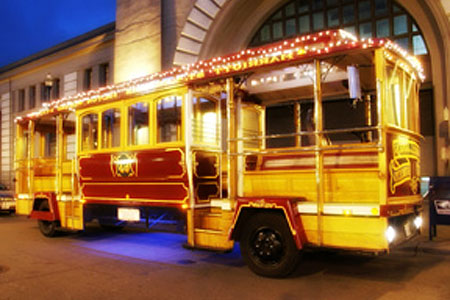A guide to event planning checklists in the UK
Planning an event in the UK, from a charming village fete to a grand charity gala, can be both exciting and overwhelming. Whether you’re securing a quintessential village hall adorned with bunting and steeped in local history or navigating the intricacies of afternoon tea, meticulous planning is key to a smooth and successful event. Here’s where a well-structured checklist becomes your hero. With a well-organized checklist, you can transform the whirlwind of tasks into a manageable, step-by-step process, ensuring every detail receives due attention. This guide explores the essential steps and considerations for your UK event planning checklist.
Setting the stage: goals and audience
The foundation of any successful event lies in a clear understanding of its purpose and target audience. Are you hosting a lively summer garden party for a special occasion, or a professional conference for industry leaders? Identifying the event’s goal allows you to tailor every aspect, from venue selection to catering options, to resonate with your target audience.
For instance, a wildlife charity fundraiser might benefit from a venue with outdoor space for nature-themed activities, while a corporate conference aimed at attracting investors would require a more professional setting. Imagine a well-equipped conference room within a prestigious hotel, perhaps one boasting a rich history.
Securing a venue
The UK boasts a diverse range of event venues, each offering a unique charm. Traditional village halls, adorned with bunting and steeped in local history, are ideal for intimate gatherings or community events. For a more formal affair, stately manor houses or grand hotels steeped in history provide an elegant backdrop. When selecting a venue, consider accessibility, parking options, and catering facilities.
Catering to every palate
Food and drink are cornerstones of any British event. A well-curated menu not only satisfies appetites but also sets the tone for the occasion.
For casual gatherings, consider classic British fare like sausage rolls, scotch eggs, and finger sandwiches. Formal events can be elevated with a three-course meal featuring seasonal ingredients, showcasing culinary expertise. Don’t forget afternoon tea, a delightful and quintessentially British experience featuring finger sandwiches, scones with clotted cream and jam, and a selection of teas.
Setting the mood and communication
The right ambience can elevate an event from ordinary to extraordinary. Clear communication is paramount for a successful event. Here’s how to achieve both:
- For a summer garden party, string lights and colourful bunting create a festive atmosphere. Live music from local musicians or a jazz band adds another layer of entertainment.
- For a formal event, a more sophisticated ambience might benefit from classical music playing softly in the background.
Design invitations that capture the essence of the event, be it a playful digital invite for a casual gathering or a formal printed invitation for a corporate event. Ensure they include all the necessary details. Implement a user-friendly RSVP system to gauge attendance and plan accordingly. Regular updates, particularly for larger events, keep guests informed about any changes or additional information.
The finishing touches and beyond
Décor plays a crucial role in setting the mood and tying the theme of the event together. Simple yet elegant floral arrangements, themed table decorations, and well-placed signage all contribute to the overall experience.
Don’t forget the logistics! Plan seating arrangements for a formal dinner and ensure signage directs guests to specific areas and restrooms. The unpredictable British weather necessitates a backup plan for outdoor events. Having a designated indoor space or ensuring the availability of marquees can save the day if rain decides to make an unwelcome appearance.
A successful event doesn’t end with the final farewell. Send thank-you notes to guests for their attendance. For corporate events, share a post-event summary or presentation materials to reinforce key messages. Follow up with vendors and settle any outstanding payments. Finally, evaluate the event’s success through surveys or feedback forms to gain valuable insights for future planning.
Conclusion
Planning a successful event in the UK is a combination of meticulous organization and embracing the spirit of adaptability. By employing a comprehensive checklist and infusing your event with British charm, warmth, and a dash of tradition, you can ensure a memorable experience for all your guests. So, raise a glass, whether it’s a refreshing Pimms at a summer gathering or a sparkling glass of champagne at a formal gala, to a successful event that celebrates the essence of British hospitality.







